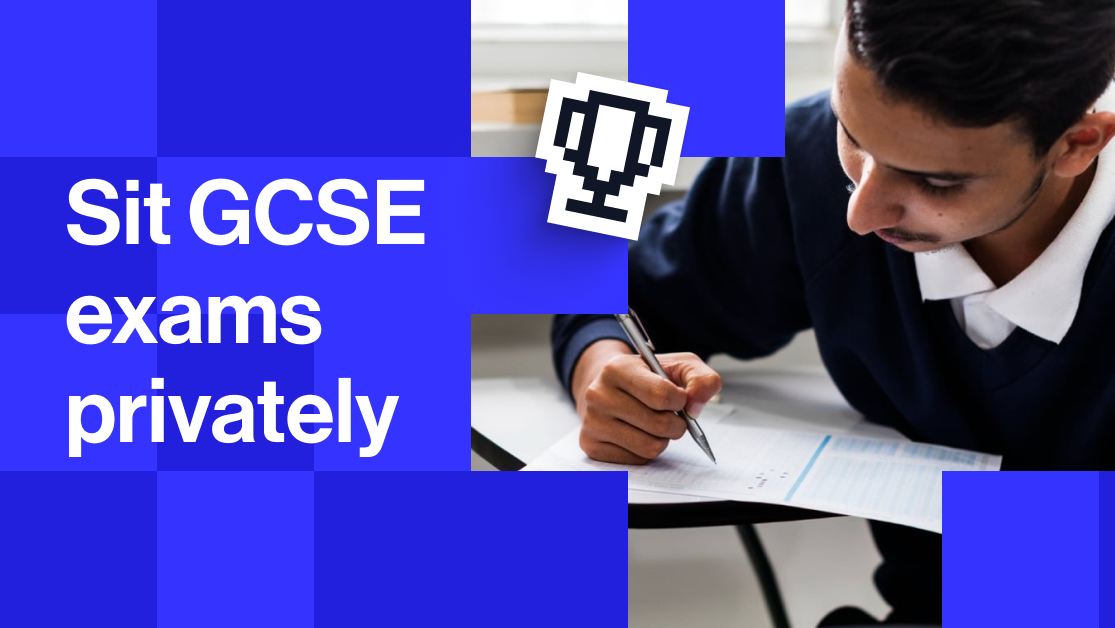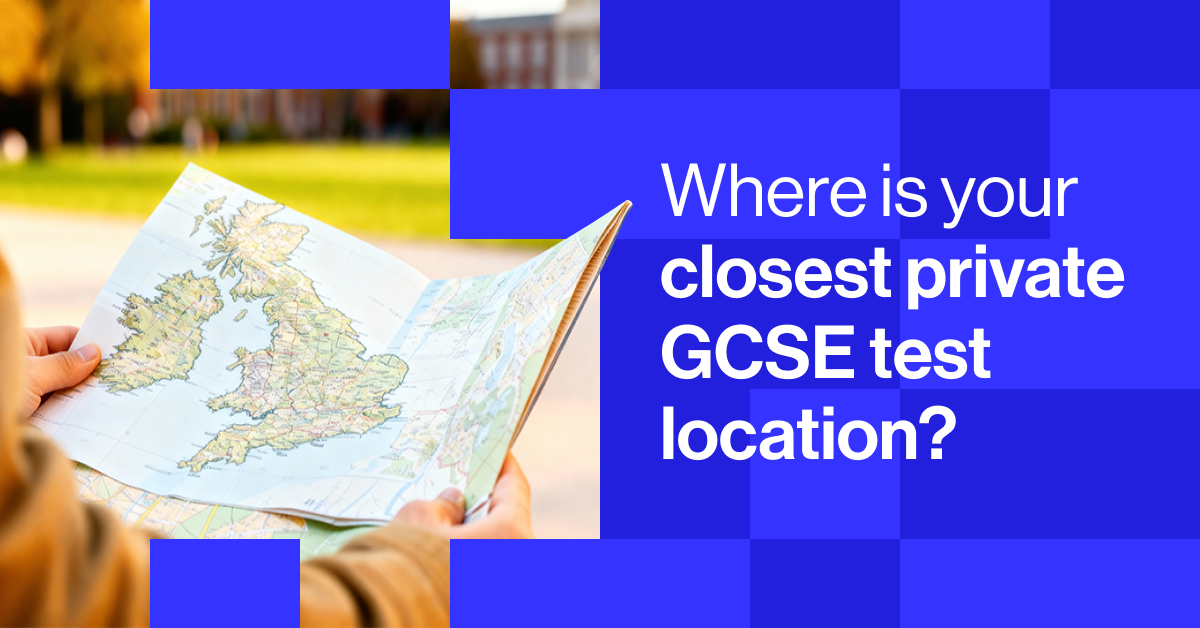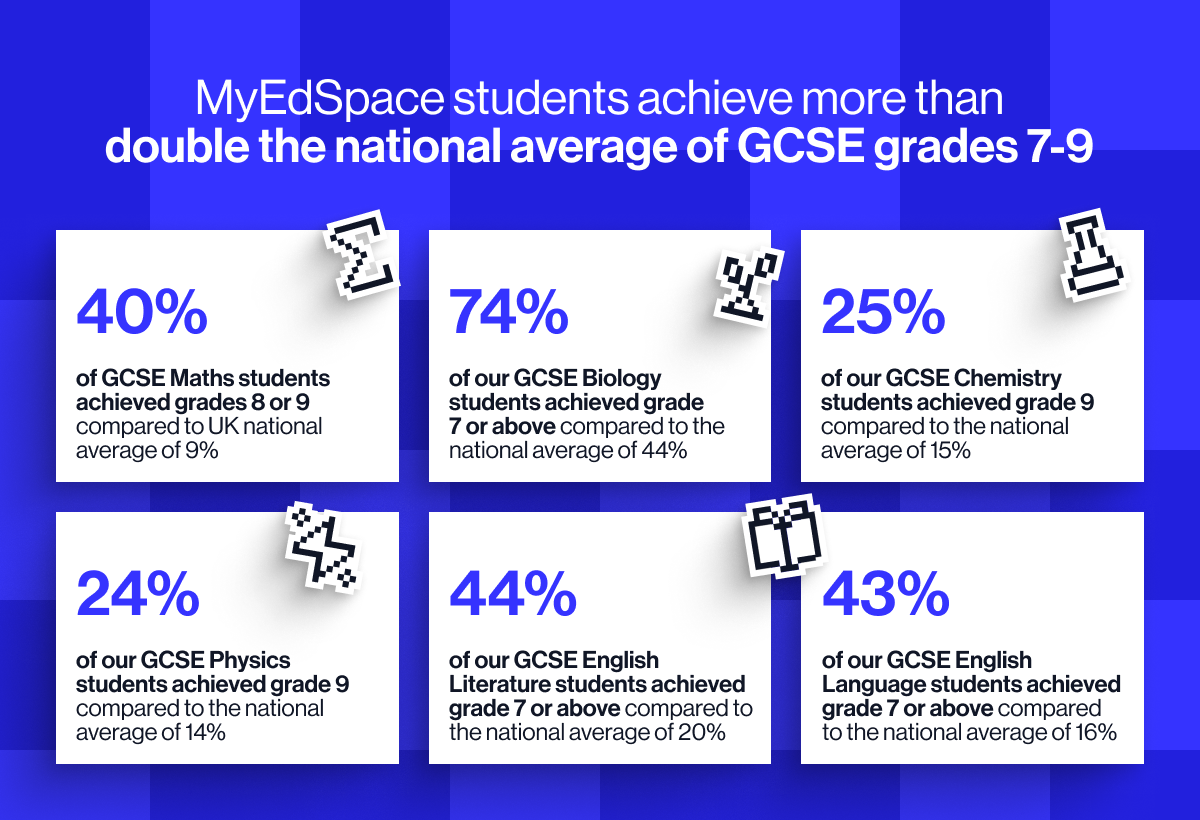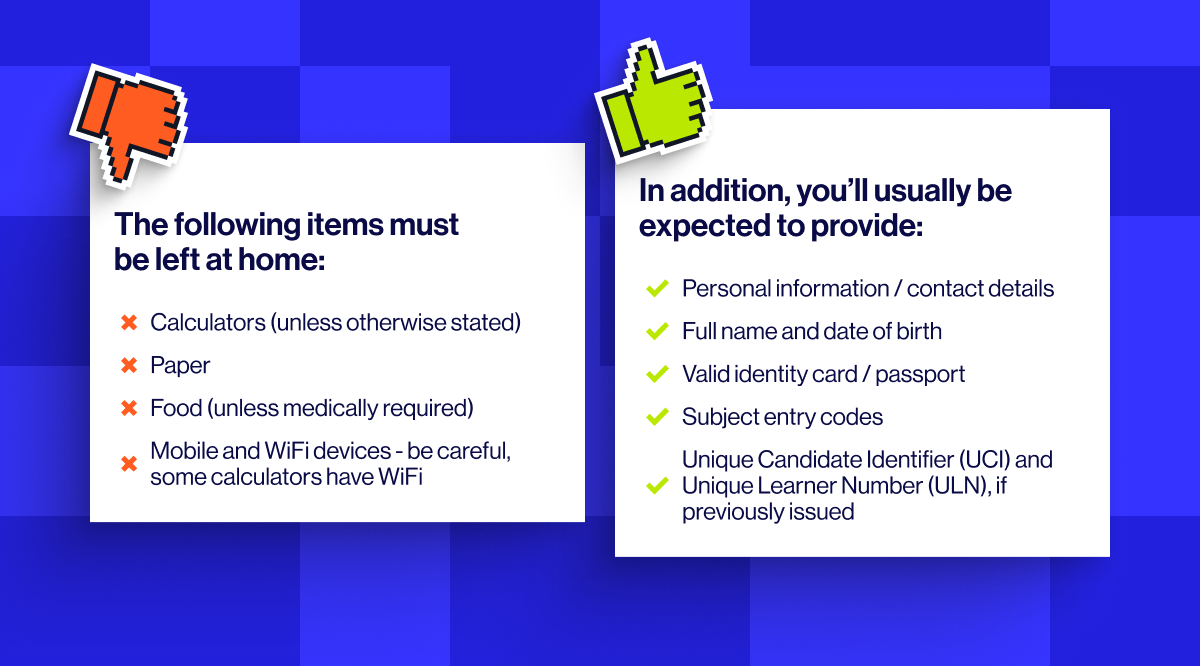
How to sit GCSEs privately
From homeschooling to mature students, private tutored to self-taught, there are a variety of reasons why people might choose to sit their GCSE exams privately.
Here’s everything you need to know, if you want to do the same.
Find a GCSE exam centre
To privately sit GCSE exams, the first thing to do is find the best place to do it.

Dedicated GCSE exam centres are located across the UK, but be aware that the right one for you may not be the closest. This is because there are separate centres for the different exam boards, and for ‘International GCSEs’ (IGCSEs).
Each exam board and the Joint Council for Qualifications (the people who run the IGCSEs) offer their own exam centre finding tools;
Private GCSE exam fees
The cost of sitting GCSEs privately depends on the number of subjects and the type of exam (GCSE or IGCSE).
At the time of writing, prices for both GCSEs and IGCSEs are between £100 - £200. But, testing centres can add £20-£100+ in admin or processing fees.
So, for five subjects, you’ll want to budget between £520 and £1,100.
Preparing to sit GCSE exams
No matter whether you’re sitting GCSEs privately or in a school, it pays to be as prepared as possible.
That’s why at MyEdSpace we’ve handpicked the UK's top teachers to deliver our GCSE course, covering the full UK curriculums in English, Maths, Biology, Chemistry and Physics.
Each subject includes two live lessons per week, bespoke workbooks, targeted homework and step-by-step video walkthroughs for each topic - all of which are designed to maximise their grade-scoring potential and remain available on-demand, right up until exam day.
Plus, we offer a variety of supplementary GCSE revision courses, including our Easter revision lessons.
The results speak for themselves. Last year;
-
Three times more MyEdSpace students achieved GCSE grade 9 than the national average
-
Over half of our GCSE Maths grades were 7-9 (51%) - also triple the national average
-
Over one-third of our students achieved GCSE grades 8 or 9 (35%), compared to just 12% nationally
-
Well over half of our students achieved GCSE grade 7 or above (56%), compared to under 25% nationally (22%)

Private GCSE exam test conditions and what you will (and won’t) need on the day
Sitting GCSEs privately involves the same rules and regulations as students would find in schools and colleges.
Before the date of the exam, we’d recommend taking some time to thoroughly read the testing centre’s conditions, but as a general rule, the following items must be left at home:
-
Mobile and WiFi devices - be careful, some calculators have WiFi
-
Calculators (unless otherwise stated)
-
Paper
-
Food (unless medically required)
However, you will need to take some things with you and most private GCSE exam centres will expect you to provide:
-
Your personal information and contact details
-
Full name and date of birth
-
Valid identity card or passport
-
Subject entry codes
-
Unique Candidate Identifier (UCI) and Unique Learner Number (ULN), if previously issued

Finally, from all of us at MyEdSpace - good luck.